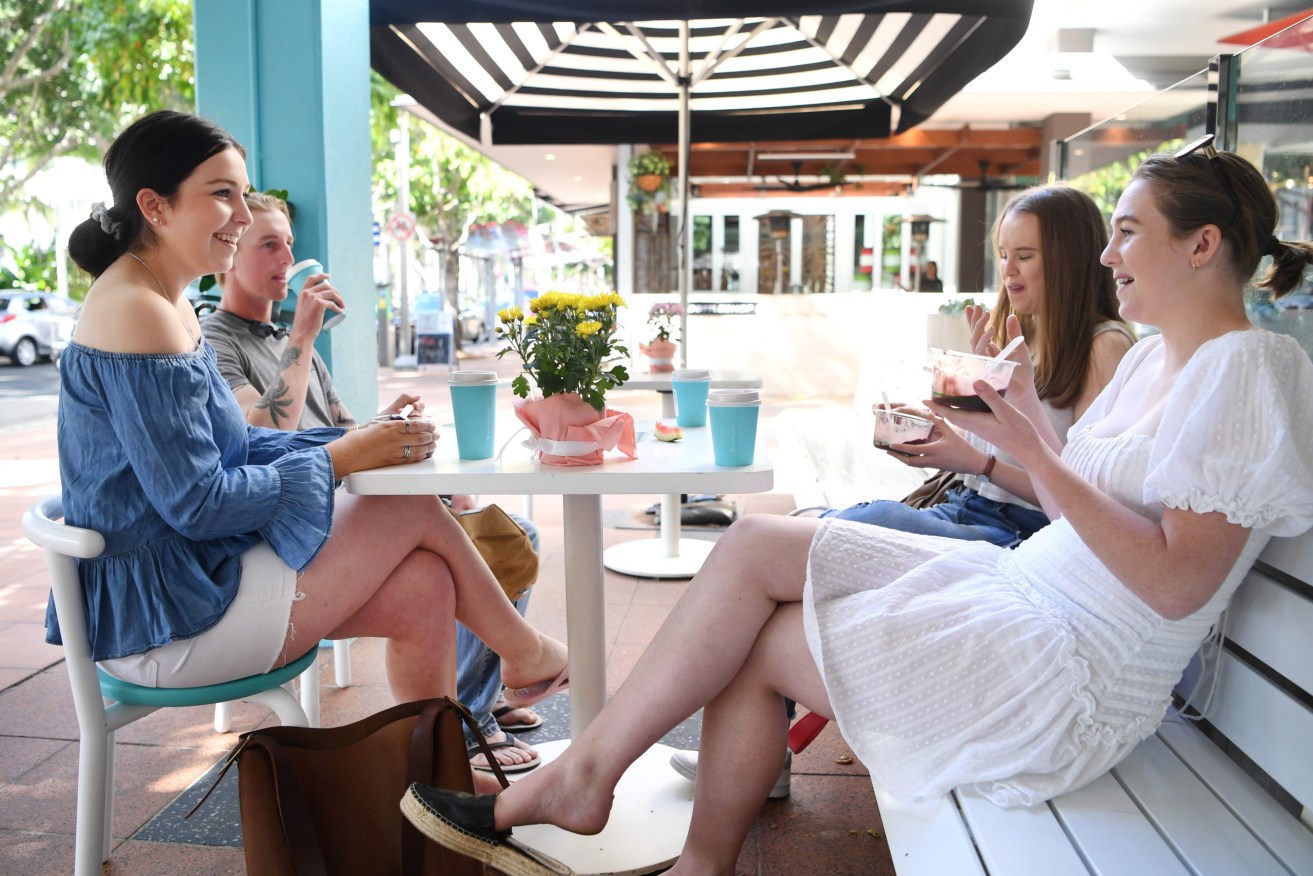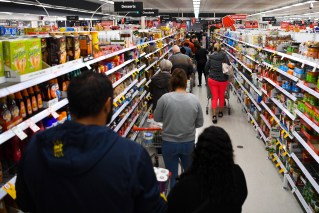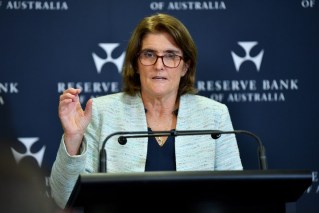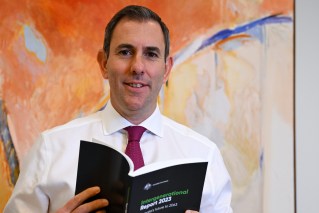Cafe culture grabs an extra $1 billion from Australians
Queensland retailers took in $7.1 billion in August, almost $900 million up on the same time last year, according to the Australian Bureau of Statistics.


A group of cafe-goers at South Bank in Brisbane (Photo: AAP Image/Dan Peled)
The data showed retail sales for the month were down slightly in Queensland but that the sector remains buoyant despite interest rate hikes and a volatile share market.
Cafes, restaurants and take away food services nationally have shown a remarkable increase in turnover since Covid restrictions were lifted earlier this year.
The sector’s national turnover has increased by $1 billion between January and August to $5.067 billion and that has been achieved while many deal with a serious staff shortage.
Economist James Foster said the rise in spending at cafes and restaurants was both a function of the consumption patterns normalising, following Covid, and the underlying strength of household demand.
Nationally, the August increase in retail sales was the eighth consecutive rise and followed a 1.3 per cent rise in July 2022, and a 0.2 per cent rise in June 2022.
Queensland’s August dip was the worst result nationally, with NSW reporting a 1.5 per cent bump for the month.
Household spending and how it responds was one of the major areas for concern for the RBA after it increased rates yesterday by 25 basis points.
Foster said household spending was resilient through August, albeit with a softer result from discretionary retail sales coming through.
“Households continue to spend despite rising interest rates, cost of living pressures and weak indicators of sentiment,” he said.
“A fall in household wealth associated with the declines in financial markets and property prices has also not deterred demand. The predominant factors appear to remain accumulated savings and the support to incomes from the strong labour market.”
“Higher inflation and higher interest rates are putting pressure on household budgets, with the full effects of higher interest rates yet to be felt in mortgage payments,” RBA Governor Philip Lowe said.
“Consumer confidence has also fallen and housing prices are declining after the earlier large increases. Working in the other direction, people are finding jobs, gaining more hours of work and receiving higher wages. Many households have also built up large financial buffers and the saving rate still remains higher than it was before the pandemic.”
About $140 billion was estimated to have been squirrelled away by Australians during the pandemic which has helped them deal with increased inflation and increases in mortgages.
The Commonwealth Bank estimated that savings increased during Covid by as much as 50 per cent because Australians were concerned about the looming economic shocks.












